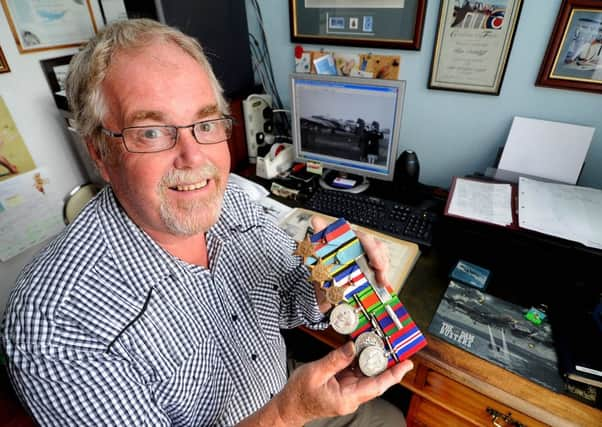A son’s poignant return to war-time crash site


Seven days after Royal Canadian Air Force Flight Sergeant William Brown Gracie was killed in action when his aircraft was shot down near a French village in the Second World War, his son was born.
But it was to be several decades before Ken Cothliff was to learn who his father was and the circumstances of his death.
Advertisement
Hide AdAdvertisement
Hide AdNow as the 70th anniversary of the serviceman’s death nears, his son is preparing to return once again to the village where the aircraft went down.
Mr Cothliff, of Rawdon, was months old when he was adopted by a family in Liverpool. “I can not remember not knowing I was adopted,” he said. “My parents told me at the earliest possible opportunity and they always said to me that I was very special because I had been chosen.”
But the loss of a child, who was still-born, and a change in the law in the late 1970s which paved the way for adoptees to find out about their natural parents, prompted Mr Cothliff to seek out details about his biological mother and father.
A passion for aviation which Mr Cothliff had harboured since he was a boy also fuelled his interest in his biological father.
Advertisement
Hide AdAdvertisement
Hide Ad“Years earlier my Mum had hinted my (biological) father was something to do with the Canadian Air Force but that was all she had ever said,” said the retired aviation consultant, who used to run an aviation shop and ran the Yorkshire Air Show for nine years.
Mr Cothliff, 69, began tracing his biological father in 1977 and once he had his name, service number and the date of his death, pieced together details of his final flight. He later made contact with his paternal grandmother in Canada, who had not known of his existence until then.
Born in Scotland, F/Sgt Gracie had emigrated to Canada as a child with his family. The flight engineer was part of a crew on a 425 Squadron Halifax bomber, which took off from RAF Tholthorpe near York, on August 5, 1944, targeting a V1 rocket storage and assembly area.
The aircraft, nicknamed Allen Cup, was hit and an eyewitness described seeing the wing falling off, before it plunged into woods near the village of Saint Maximin.
Advertisement
Hide AdAdvertisement
Hide AdA Canadian maple tree and memorial plaque in Saint Maximin now pay tribute to the crew. And on Tholthorpe village green, close to where F/Sgt Gracie took off on his first and last missions, is another maple tree, with a plaque engraved with the words: “In memory of a father never known.”